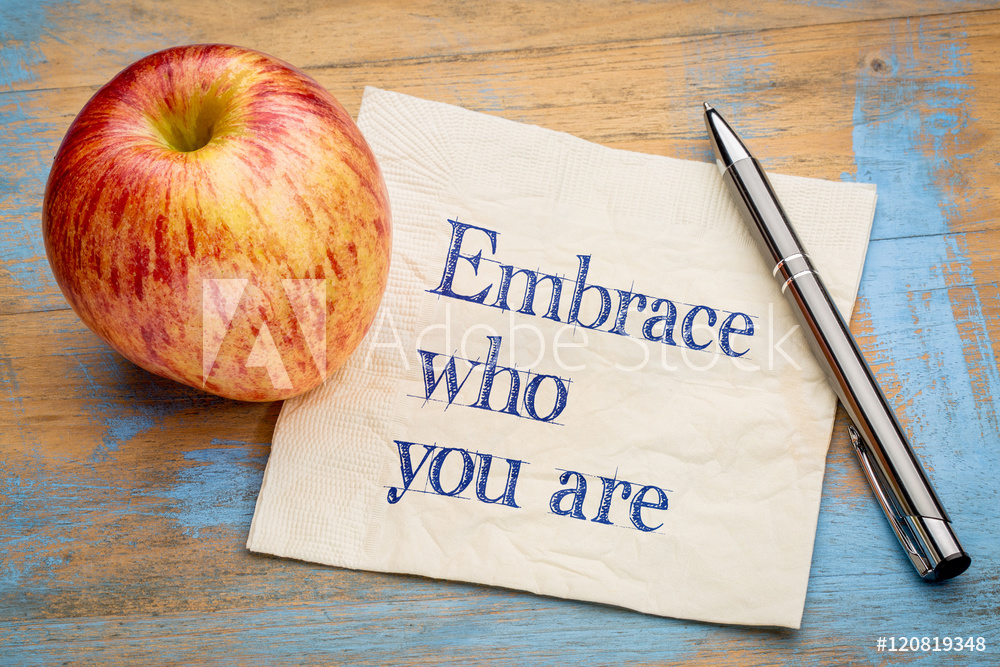When I was twelve, I often feIt unsafe and alone. I was adjusting to starting junior high, being at a new school and not having friends, beginning to experience the changes of adolescence and feeling tension in the home. No one in our immediate family of five were Christians. And we were a thousand miles away from any extended family. I did not feel incredibly loved.
I felt anxiety and depression as I entered this new phase of my life. I also did not feel I could confide in my parents or anyone else how much I was troubled within. Then, my parents decided to move our family 2,000 miles to Illinois.
The good part of this move was relocating to the same town where my extended family lived. This included visiting with my aunts, uncles, cousins and grandparents on a daily and weekly basis. My emotional disturbances melted away within a month of arrival because of the steady and unconditional love I felt coming from my extended family.
Experiencing God’s Incredible Love for Us
Trust in and experiencing God’s great love for us helps us to feel safe and at peace. We sense that God is our place of safety because he is strong and loves us. Our fears begin to melt away. We become less afraid of all the dangers and what could happen, and more confident that God will protect us from the worst-case scenarios we imagine. But how do we know he loves us?
My grandmother best modeled God’s love for me. She was a Christian and deeply loved God and as a result he lived through her in a powerful way. She was safe to be around. No fear of being hurt by her in any way. She accepted, enjoyed and respected who I was. I felt loved especially when she gave me big hugs. I could relax and be myself. No need to be on my toes to avoid criticism or punishment. This is what Grandma’s love felt like and is a microscopic representation of how God loves us.
Imagine what it would feel like if we could comprehend and rely on God love for us that is “as great as the height of the heavens are above the earth” (Psalm 103:11, NAS). As I grow in the experience of this immense love, this is my reasonable expectation of the benefits for me:
- Much more peace and less anxiety
- Expecting more of the positive to happen rather than the negative
- Much less dependence on demanding good treatment from others
- Much more content with my circumstances in life
- More capable of loving others deeper
- More pleasing to God because loving others is the top of God’s list of what pleases him
- Less turmoil as I focus my attention on giving love rather than just receiving it
- Less fear of people as I depend on God’s stable and overwhelming love rather than my ability to impress others to get their love
Why it Is So Hard to Comprehend this Love
It’s impossible to fully comprehend God’s incredible love for us. His love flows from who he is, not who we are. He loves us because he chose to love us, not as a reward for being good little boys and girls.
We experience his love in his patience and kindness with us, and his protection (1 Corinthians 13). But we have a hard time accepting this love because it is so radically different from the way the world operates. We have been programed by our parents and society to earn love through our performance. Often, we do not experience love when we fail but only when succeed and please. Because our need to be loved is so strong, we will do almost anything to earn this love.
But God is different. He doesn’t require us to earn, please and impress. Just trust in him to give us incredible love by just accepting it as a gift. That’s why many of us reject it. It doesn’t make sense.
In my childhood home I was a busy beaver looking for ways to be safe, important, respected, and loved. What do I have to do today to feel safe? To do nothing, relax, and be myself felt suicidal. I would be crushed by criticism and sometimes much worse. To be loved was something to be earned.
Not so with God. He us loves because we are ourselves, not the gushy up self we present to our parents and others- but the real us with all the weaknesses and sin we practice daily. Jesus took care of that messy stuff we try to hide.
But many of us lean too much on our understanding and reject this truth. Instead, we get busy trying to obey the Bible in our own strength. We miss the grace he offers us to be treated as prince and princess and instead try to be workers who are worthy of this status.
It is stunning and unbelievable to realize that Jesus loves us so much that he died for us. He did not do it for himself when he went through the most agonizing death devised by man. His only reasons were to save us from going to hell, qualify us to live with him forever, and to see his glory. That’s love! As Jesus said, “There is no greater love than to lay down one’s life for one’s friends” (John 15:13, NAS). And that’s what he did.
How To Experience God’s Incredible Love for You
Because our understanding and experience of unconditional love is so limited, we need to rely on God for the capacity to comprehend it more. We need to live in the power of the Spirit. Paul knew this when he prayed for the church in Ephesus. He asked God to give them “the power to understand, as all God’s people should, how wide, how long, how high, and how deep his love is (Ephesians 3:18, NLT).” He further prayed that they “may experience the love of Christ, though it is too great to understand fully (Ephesians 3:19, NLT).”
Another way we can experience God’s great love for us is through godly mentors. I came from a childhood in which I experienced conditional love. If I pleased and achieved, I felt some form of being loved. But that is not the way God loves. Through a godly mentor I had as a young Christian, I felt unconditionally loved. He was like a loving father who answered my questions, was interested in me, and cheered and showed me the way to live in this new world of spiritual warfare. This experience helped me to get a taste of how God loves me.
Another way we experience God’s love is through the love of a godly spouse or other person who is close to us. The woman God led me to marry is tenderhearted, kind, affectionate, gentle, fun, and loving- all traits of God and gives me a daily experience of his love which is flowing through her life throughout the day.
Thankfulness gives God the credit for the daily ways he shows his love to us. His wisdom to make a good decision, his protection from injury and disease, the courage he gives us to face our fears and grow stronger and listening to us whenever we talk to him. These experiences help us to grow in realizing that God really does love us.
Another way to comprehend God’s love for us is to compare it to the love we have experienced from the world. Reflect on instances when we felt loved by the world and then on the love we know and experienced from God. What differences do we see? It is important to lay aside the understanding of the world’s kind of love and accept the truth that God loves us differently. There is no pressure and no end to God’s love like there is in the world. We are safe in never fearing losing it. As Paul says, “I am convinced that nothing can ever separate us from God’s love. Neither death nor life, neither angels nor demons, neither our fears for today nor our worries about tomorrow—not even the powers of hell can separate us from God’s love” (Romans 8:38, NLT). It is important to lay aside our preconceived experiences of being loved by the world or we may fail to grasp God’s much different and deeper love for us. We may project onto God the world’s way to love and think that God’s love is the same.
God makes no secret about his great love for us. It’s all over the pages of the Bible. Meditate on these verses and passages where God makes clear how much he loves us. He loves us so much he died for us (John 3:16). He delights in us and calms our fears (Zephaniah 3:17). He will never abandon us (Deuteronomy 31:6). And he loves us just the way we are (Isaiah 43:4).
Also, we can repeat to ourselves how he views us until the truth moves from our heads to our hearts. Truths like “I am precious and loved” (Isaiah 43:4), “I am the apple of his eye” (Psalm 17:8) and “Nothing can stop God from loving me” (Romans 8:39,39).
A difficult way to grow in experiencing and understanding how much he loves you is embrace challenging times that encourage us to lean hard on him. We often make idols out of safe and good circumstances that keep us from trusting in his love to get us through. We cling to this world and its benefits instead of abandoning ourselves to his tender and faithful love and care. And because we don’t have to, we often don’t. But when our backs are against the wall, we must trust and rely on his love or else.
I experienced one of those “or else times” soon after I became a Christian. This is a time in which my back was against the wall, and I had no other choice but to depend on God. The job was as a Development Engineer in the Air Force, and it was overwhelming. I had so many projects on my plate that I couldn’t even think about projects in the next week. This worked to some degree, but one night I had to develop next year’s $25 million budget in one night to present the next morning. The night before was as soon as I could make time to do it. And it was a disaster the next morning!
I also led large meeting of engineers in developing improved missile systems even though I had to rely on the competence and honesty of the engineers because of my limited expertise. God was who I depended upon to enable me to meet the demands of this impossible job. I had no other choice. And he came through miraculously for me enabling the projects to be done timely and in a quality manner that resulted in me receiving a Commendation Medal for meritorious service. How do you figure, if not God? He loved this new child in the faith by enabling me to succeed.
We are saved by an act of faith, but we grow through living a life of faith. We need to be connecting with God’s life throughout every day by practicing spiritual disciplines that help us to access his life. Disciplines like praying Scripture, praying for our needs and for others, reading the Bible, meditating on it, making applications, and committing our problems to God as they occur. We are in a partnership with God and practicing disciplines is part of the light load we carry to have the power to experience his awesome love for us at the heart-level.
It is also helpful to identify the substitutes or idols we use to not depend on God’s love for us. We can be too reliant on the approval from others, the love of a spouse, conforming to popular opinion, and not being real with others. When we get a measure of satisfaction from these substitutes we are not as likely to lean hard on God’s love for us to free us from our fears (1 John 4:19).
Application Questions and Exercises
1. Meditate on John 15:13. As you think about what Jesus says in this verse, what feelings do you have? Any thoughts come to mind that would cause you to doubt Jesus’s love for you despite dying on your behalf? Are these thoughts true?
2. Visualize a person who is or was in your life that has made you feel loved the most. What are your feelings and thoughts? Now, picture yourself in God’s presence and experiencing his love for you which is “as great as the height of the heavens above the earth” (Psalm 103:11, NLT). Are your feelings and thoughts different?
3. Imagine how your life would be different if you lived throughout the day in comprehending his awesome love for you. Describe some of the differences. What is your response to these differences?
4. What makes it hard for you to live in the experience of his great love? Ask God what is one change he wants you to make that will help you grow in relying on his love for you more.
5. Think of some of your weaknesses and sins. Imagine presenting the worst of these to God. What does he do? Does his imagined response support his incredible love for you? If not, what does the Bible promise is his response to your sins and weaknesses?
6. Describe the love you experienced growing up in your childhood home. Compare that love to God’s love that you have experienced. In what ways is God’s love for you deeper and richer?
7. We know God loves us because the Bible says he does. Do you trust and rely on this truth to live your life? What evidence in your life reveals you live in this reality? What shows you do not fully depend on this truth?
8. Reflect on your life and recall situations God put you in in which your back was against the wall. How did you grow in faith through these situations? Thank him for each situation and what you experienced from each one that helped you trust that he loved you.





